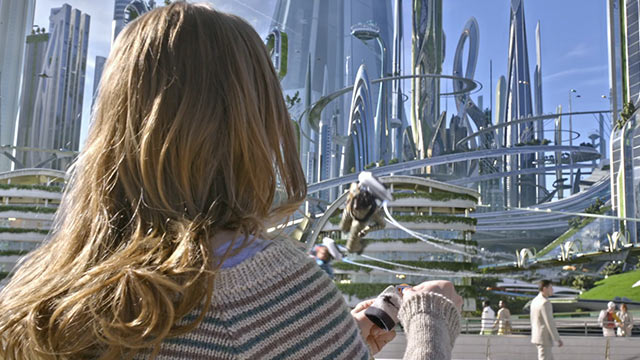The popularity of dystopic culture, I believe, is far more complicated than a fear of the world ending. We’re not really worried about things falling apart but that they might not.
Part of the allure of apocalypse entertainments is that we get to, if briefly and virtually, quiet the hum of progress, the noise of the new technologies. There’s a deeply buried anxiety within us that the world will continue apace–perhaps at an accelerated pace–leaving most of us in its wake. The death of development on screens and in pages is a relief of sorts, something we crave, not dread.
In his latest Medium piece, “Optimism Doesn’t Sell,” Jeff Jarvis, who sees the Google Glass as half full, writes about the box-office failing of Disney’s future-positive Tomorrowland:
Much of the dystopianism that surrounds us today is about our machines and the companies that run them: how Google makes us stupid, Facebook kills privacy, Google Glass turns us all into peeping Toms, robots will take our jobs and our car keys, the internet of things will open the door to crime, and artificial intelligence will bring unspecified dangers (the juiciest kind).
But the truth is that dystopianism is rarely about technology. It’s about people. The dystopian fears that his fellow man and woman are too stupid to use technology well, too gullible to see its risks, too timid to control its dangers, too venal to see beyond its temptations.
Dystopianism is the ultimate statement of hubris: ‘I am smarter than the rest of you,’ says the profound pessimist. ‘I can see where you are all going wrong. I can see that you can’t learn. I am better than you all.’
Like game shows, reality TV, and gawking at Walmart shoppers, dystopianism is mostly an excuse for making fun of your neighbors and feeling superior to them. They’re so stupid they’re ruining the future.•
Tags: Jeff Jarvis

